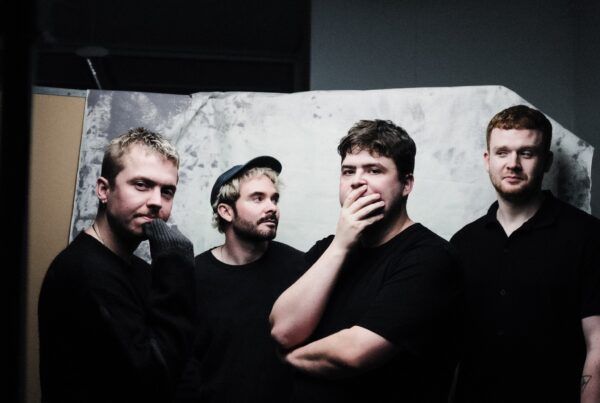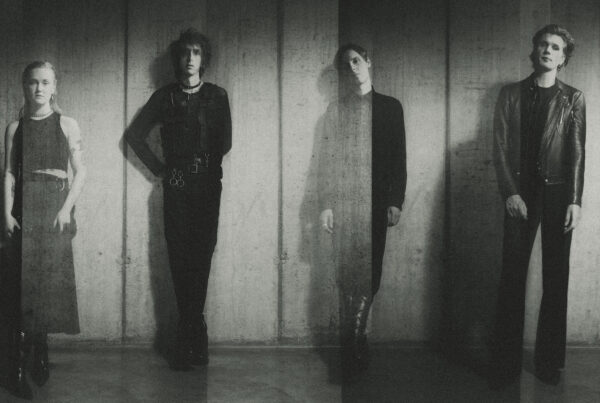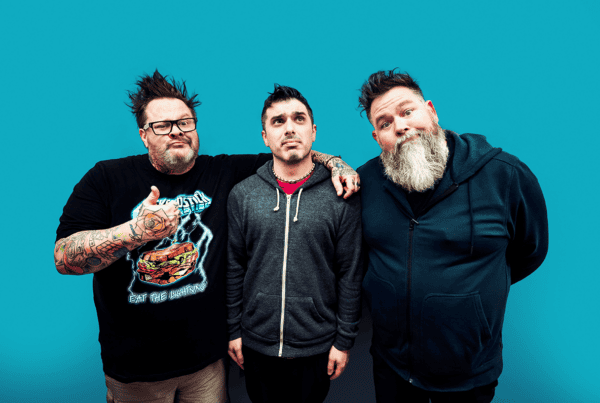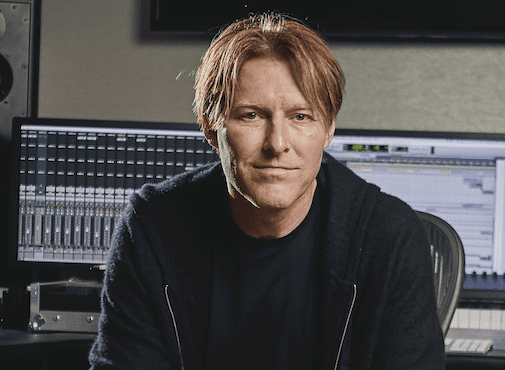Soundsphere has picked Warren Higgins music PR brain for its latest industry spotlight, to get the ins and outs of how to make your break in the industry and the dos and don’ts on acting professional when in the working environment. Warren Higgins is founder of music PR company Chuff Media and has been running the company successfully for the past seven years.
S] How did you get started, how did you get your break in the industry?
W] “Well besides from being a failed drummer! I ended up going to university, started hanging out at the individual mic nights, writing music reviews and worked for the university newspaper, and then just got elected into being vice president at the Students’ Union and then it became a full-time job so from that I was getting asked by people to write music reviews, and so was always chatting with the PRs and always quizzing them on how they got their jobs and how they do it and make a living from talking to people about music? When they said they did, I was like, ‘I could do that as a job…’ and so that’s when I met a few people at gigs and they explained that if I wanted to come and do any interning for them or some work experience then you’re more than welcome. I used to go to university in Bedford, so would catch the train down to London, take a few weeks holiday off from university and do some work experience for some people, literally stocking envelopes, updating their databases, go to gigs and that’s when I decided that’s what I really wanted to do, but unfortunately as the case is with many internships, it wasn’t paid, so I moved down to London in a youth hostel, took out a credit card and stuffed envelopes until someone paid me!
You might get £50 to £100 here and there, get free entry into gigs and clubs then take advantage of the free bar after the band finish the set. It’s all literally taking any opportunity, sleeping on people’s couches, handing out flyers, but making sure it all had anything remotely to do with music! The main thing was just going in day and day out, when I had a little job for six months doing a thing for an American university, which was very similar to what I did at my English university, I was finishing at 6pm at night, and going straight on to working with PR companies offices and updating their databases until about 10 o’clock at night. It was a case of, I want to do this, can you pay me, and yeah, I was doing that for six months then started getting paid! Then it was just a case of using those contacts id made and eventually ending up with a better company and they give you a better wage.”
S] Chuff’s been going for a while now [seven years], what were the biggest challenges building that whole thing, you’ve worked with some amazing people and you’ve got that background there, how have you built the whole thing and it’s reputation for a long time, what were the biggest challenges with that?
W] “Getting clients, because a music PR company is only as good as its roster. Saying you used to work this band and that band, that’s all well and good but it’s only as good as your current roster, because if you were working this band, why aren’t you still working with them? So when I first started off with Chuff having worked with different labels beforehand, I started with two bands; Kaiser Chiefs and The Automatic and literally went into their record label at the time and said, ‘Look, I’m starting off by myself, as you came to me with these acts, I would like to stay working with them, can I do it?’ They then turned around and said ‘Okay, well here’s another four acts for you to help you out! And so, it was just a case then of going down, making sure I completely delivered for those acts, and that everyone was happy. I was just going out and make everyone aware that I’d started up this company; people got to know what we do, and that we give off a lot of good will and get hold of a lot of people, at shows and record companies; I let them know what I was doing and it was literally within about 3 months I was working with two of my own employees.”
S] What have some of the highlights been for you?
W] “For me personally, I was 16 when grunge happened, and I remember getting kicked out of the Alice In Chains gig in Belfast, caught crowd-surfing! Also, getting my photo taken with the band members just brings the total fan boy in me. I’ve met Brian May and it’s meeting people like that, that is the highlight, meeting the people I look up to. Being able to work with, and meet people I grew up listening to and who shaped who I am today is the be all and all really.”
S: In terms of looking for someone to join you at Chuff, what sort of qualities would that person have to have?
W] “Someone who really wants it, because since I started up Chuff, every single person I’ve employed has been an intern for me and have had to really prove they want it. Everyone’s had similar backgrounds and have their fan sites where they write reviews, that can hassle people, like to take photographs, that work on the doors at their local venues. These people are very proactive and are already out there trying to make it in their own way in the industry. Someone managing their mates’ band or whatever. I just definitely want to see people that want to do it.
It’s not the best paid industry in the world unless you’re at the top of your game, or an artist and even they don’t get much; a lot of people think it’s very glamorous, but everybody wants to do it, but the only people that do it are those that show the dedication. I’ve known people trying to get into record labels who haven’t; they haven’t worked for their student newspaper or had their own site where they write reviews, you know they just don’t get looked at! And that’s what everybody looks for, at the end of the day in this industry, if you’re a lawyer, an accountant, whatever; you’ve got a love for music. They look for someone that is dedicated and has shown they’re trying to make it on their own. It might be on a small microscopic level, but it’s the people that jump in for gold.”
S] Should people head down south to get the work?
W] “It’s a tough one. There are opportunities but they are extremely limited. There is a little industry scene in Liverpool and Manchester but unfortunately the industry is in London. That’s where everyone is based, that’s where all the big companies are, almost all the record labels are here. When a band plays a one off show in Europe, it’ll be in London. Unfortunately, if you want to progress, you have to come down here, but by all means you can move out of London once you’ve established something for yourself, but to establish yourself at the start you have to be in London. But there’s no reason why you can’t do an internship at your local promoter or local venue. If you’re making progress there and are bringing people and money into your local venue, people will take notice, people down here in London will take notice and then you’ll get the phone call for you to come work for them down here.”
S] What would be your dos and don’ts? If you were to advise someone coming into Chuff, any good tips?
W] “Keeping in touch with people, that’s what I did as a student and then when I graduated I had all these contacts, every week stuffing envelopes in their hands, then I’d ring them up to make sure they got it and then have a little chat. Personal relationships! Everyone wants to get on with people, and the industry is fairly small in the fact that most people know everyone or know people that know people, and if you get a bad reputation, everyone soon finds out about it. So the best thing I can say to do is to be nice to everybody. If you develop a good relationship with companies, keep that good relationship going by dropping them a line every now and then, but don’t hassle them.
One of the big don’ts is that because a lot of this industry is based around live events; don’t be a fan-boy or girl, be professional! Even if you don’t feel like you’re a professional, people will assume you are one. One of our little trials for interns is to take them to a gig, and as bad as this seems, get them drunk to see what they’re like drunk. We don’t want somebody turning from being a great person to then being a d***head once they’ve had a couple of drinks working for us. When you go to gigs, managers are there, record labels are there, journalists are there and others from the industry are there, so you don’t want to be getting a bad rep of someone who can’t handle their drink. But you’re going to be in an environment where people do drink, if you go to see a band and have a couple, you need to be able to hold that or be aware you’re there working, so just have one or two, know your limits. Be aware that no matter where you are, you are always working – with our job; it is a pretty 24/7 job.”
S] In terms of success, with all the bands you’re with now, what are the challenges for you and maintaining Chuff at the moment?
W] “Keeping the existing clients, which means making sure you’re always delivering, because there’s always a younger person trying to do what you do. Making sure you give the clients all they want and need, being up to date on everything so they don’t consider going to someone else. Then it’s trying to find new bands and sticking with them, hoping when they get signed, their record label takes us with them because we’ve gone so far with them. Constantly deliver to the record labels too.”
S] Do you have a rock n roll experience or general highlight you will look back on when you’re 80 as one that defines what you’ve done with your career?
W] “It’s difficult and I guess there are a few things, but most importantly it would be that I enjoy what it is I do. My dad would always say don’t work with your hands – because he used to work in the ship-yards – work with your head – and I took that to heart. Also, finding something that I’m good at! A lot of people go through lie not knowing and doing what they’re good at and I almost feel it’s something I was meant to do, that’s a bit naff though…! This is the funny thing, I run a PR company, I’m crap at spelling, I’m crap at grammar, I did dance and drama as a degree, I’m probably the least qualified person to run a PR company, but I love music, my PR company is about music and it worked! I’ve just made sure I’ve worked with the right people and made contacts with the right people and it’s lasted seven years.”
S] What are the things that keep you motivated and get you out of bed in the morning and keep you going?
W] “It’s like anything else that’s regular; you do have some down days. but at the end of the day you’ve got to think; you can’t really complain about the job that you’ve got. In the grand scheme of things, it is not backbreaking work, I’m not putting myself in dangerous situations – I’m just chatting to people about music! So if you have down days, you just need to give yourself a slap on the back of the head! Young people starting out with long unpaid days of work, unfortunately that’s the way the industry figures out who really wants it. So many people want to do it and think it’s all about the parties, but it’s not. What you need is the kids that push through all that and who demonstrate they really want to be involved with it.”







